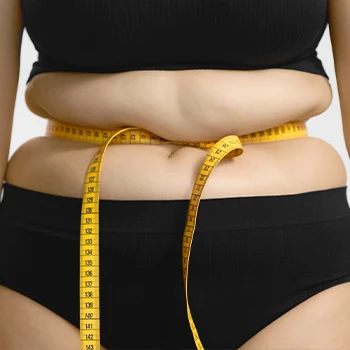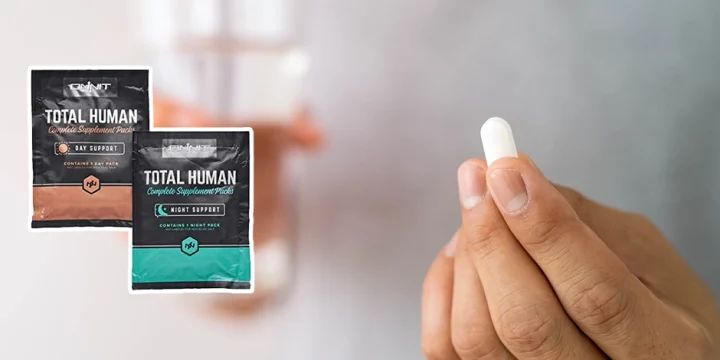Researchers have established a direct correlation between high cholesterol and obesity, a prevalent issue among many Americans.
Having practiced medicine for numerous years, one of the most frequently asked questions I receive is whether weight loss can reduce cholesterol levels.
In collaboration with my medical colleagues, I dedicated hours to reviewing scientific studies. Here's what you need to know about the relationship between cholesterol and weight.
Quick Summary
- Losing weight through a nutritious, balanced diet and consistent exercise can help reduce total cholesterol levels in the blood.
- Increasing water intake, consuming fiber-rich foods, and incorporating regular cardio exercises can aid weight loss and lower blood cholesterol.
- A 10 percent body weight reduction has been shown to minimize the risk of chronic illnesses like heart disease.
- As a practicing physician, I frequently recommend a balanced diet, natural supplements, and regular HIIT workouts to accelerate weight loss for patients with high cholesterol.
How Does Losing Weight Help Lower Cholesterol?
Losing weight through increased physical activity helps lower cholesterol by reducing body fat and minimizing inflammation.
According to the National Institute of Health, regular exercise can reverse insulin resistance, a primary factor in numerous chronic illnesses [1].
Also, another study for the same health institute highlights the importance of improving insulin sensitivity for the body to effectively produce hormones that regulate cholesterol levels [2].
For my fitness-oriented patients, I suggest aiming for at least 30 or 45 minutes of exercise, as dedicating a full 90 minutes may be challenging for some.
3 Weight Loss Tips for Lowering Cholesterol

There are several things you can do to lower cholesterol.
1. Drink More Water
Research from Johns Hopkins University indicates that drinking water can support weight loss by inducing a sense of fullness, boosting metabolism, and substituting high-calorie beverages [3].
Furthermore, Mayo Clinic recommends aiming for about 3.7 liters of fluids a day for men and about 2.7 liters for women for weight loss [4].
I often advise my patients to bring a large water bottle to the gym or use one at home and make sure to drink it all before finishing their workout to stay hydrated and replenish fluids lost during exercise.
2. Eat Nutrient-dense Foods
Be mindful of your diet, regardless of your weight loss goals.
Check our list of healthy fats and steer clear of saturated fats known for contributing to bad cholesterol.
Here’s what you shouldn’t eat:
Animal fats: Processed meats like hot dogs, salami, and red meats (beef, pork, lamb), as well as skin-on poultry and full-fat dairy products.
Carbs: Opt for a low-carb diet to support weight loss and heart health. Include whole-grain starch, fruits, and lentils in moderation (one cup per meal is a good rule).
To maintain normal blood cholesterol, focus on:
Fiber: Choose foods with soluble fiber, such as oats, flaxseed, barley, fruits, and whole-grain cereals. Soluble fiber binds to bile and removes cholesterol.
Vegetables: Incorporate at least one meatless meal per week with plant-based proteins like those in burritos, salads, or stir-fries. This helps reduce saturated fat in your body.
3. Increase Physical Activity

Exercise is an effective way to both lose weight and reduce cholesterol levels in your body, promoting overall cardiovascular health.
For optimal heart health, aim for ninety minutes of daily exercise, with a focus on cardiovascular activities such as cycling, walking, rowing, and swimming.
If dedicating 90 minutes proves challenging, strive for a minimum of 30 minutes. Some individuals may find that even 45 minutes is sufficient for positive health benefits.
Obesity and Cholesterol

According to Medical News Today, cholesterol is essential for our bodies, aiding in vitamin D production for a healthy immune system [5].
However, an excess of low-density lipoprotein (LDL) cholesterol, known as hypercholesterolemia, may lead to the accumulation of fatty deposits, blocking arteries and risking heart attacks or strokes.
Overweight individuals often experience elevated cholesterol due to the liver's production of lipoproteins and triglycerides from free fatty acids and glucose.
This results in high lipoprotein levels, including cholesterol.
Factors contributing to increased cholesterol in overweight individuals include:
- High fat tissue, leading to more fatty acids in the liver.
- Insulin resistance, elevating fatty acid levels in the liver.
- Inflammation, disrupting cholesterol management.
- Genetics also play a role in high cholesterol levels, as DNA, dietary choices, and quantity contribute to its formation.
“Hypercholesterolaemia occurs in 1 in 200-250 patients… It is a genetic disease typically affecting the LDL receptor, making it defective.”
- Seth Baum, Preventive Cardiologist & Clinical Lipidologist

FAQs
What Foods Should You Avoid If You Have High Cholesterol?
To lower high cholesterol, avoid full-fat dairy, red meat, baked goods, and foods with trans fats. Choose a low-carb diet with whole grains, fruits, and soluble fiber-rich foods like oats and flaxseed. Incorporate plant-based proteins for a heart-healthy diet.
Is Banana Good for High Cholesterol?
Yes, banana is good for high cholesterol. It’s rich in potassium and fiber, which can lower both blood pressure and cholesterol.
References:
- https://www.ncbi.nlm.nih.gov/pmc/articles/PMC4987606/
- https://pubmed.ncbi.nlm.nih.gov/2035468/
- https://hub.jhu.edu/at-work/2020/01/15/focus-on-wellness-drinking-more-water/
- https://www.mayoclinic.org/healthy-lifestyle/nutrition-and-healthy-eating/in-depth/water/art-20044256
- https://www.medicalnewstoday.com/articles/vitamin-d-and-cholesterol
About The Author
You May Also Like






